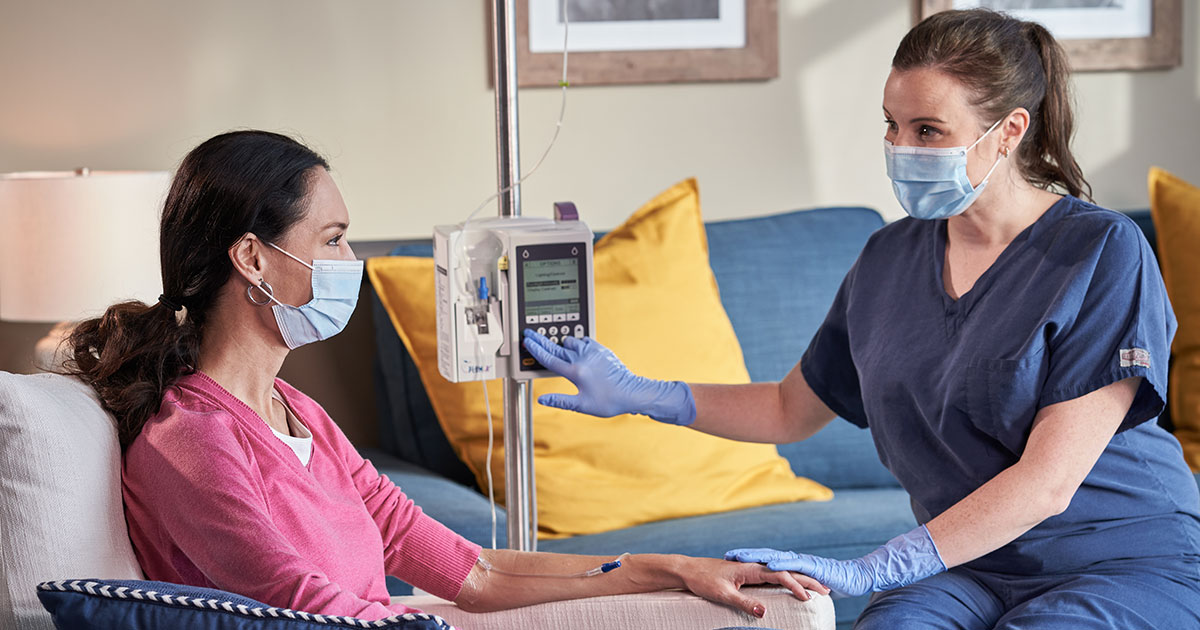The Benefits of Chemotherapy: A Comprehensive Guide
Welcome to our comprehensive guide on the benefits of chemotherapy. In this article, we will explore the various advantages of chemotherapy as a treatment option for cancer patients. Chemotherapy is a widely used medical procedure that involves the administration of drugs to destroy cancer cells. Despite its potential side effects, chemotherapy has proven to be highly effective in fighting cancer and improving patient outcomes.
Understanding Chemotherapy
Chemotherapy, often referred to as “chemo,” is a systemic treatment that uses drugs to target and destroy cancer cells throughout the body. It can be administered orally, intravenously, or through other methods, depending on the specific cancer type and stage. Chemotherapy works by interfering with the cancer cells’ ability to divide and grow, ultimately leading to their destruction. While it may also affect healthy cells, the treatment aims to minimize damage to normal cells and tissues.
The Benefits of Chemotherapy
Chemotherapy offers several significant benefits for cancer patients, including:
Potential for Tumor Shrinkage
Chemotherapy can effectively shrink tumors, making them more manageable or even operable. This is particularly beneficial for patients whose tumors are inoperable due to their size or location. By reducing the tumor size, chemotherapy increases the chances of successful surgical removal or other localized treatments, improving the overall prognosis.
Systemic Treatment
As a systemic treatment, chemotherapy can target cancer cells that have spread to other parts of the body. This is especially valuable for cancers that have metastasized or are difficult to locate and treat using other methods. By circulating throughout the bloodstream, chemotherapy drugs can reach cancer cells in various organs and tissues, helping to eradicate them and prevent further spread.
Combination with Other Treatments
Chemotherapy is often used in combination with other cancer treatments, such as surgery or radiation therapy. This multimodal approach can enhance the effectiveness of each treatment and improve overall outcomes. Using chemotherapy before surgery, for example, can help shrink tumors and reduce the risk of cancer cells spreading during the surgical procedure.
Palliative Care
For patients with advanced or incurable cancer, chemotherapy can provide palliative care to alleviate symptoms and improve quality of life. By targeting cancer cells, chemotherapy can shrink tumors, relieve pain, and reduce other cancer-related symptoms. It plays a crucial role in managing the disease and enhancing the patient’s well-being.
Treatment of Different Cancer Types
Chemotherapy is a versatile treatment option that can be used to treat various types of cancer, including leukemia, lymphoma, breast cancer, lung cancer, and many others. Its effectiveness depends on the specific cancer type, stage, and individual patient factors. Chemotherapy drugs are continuously being developed and refined to target specific cancer cells more effectively, improving treatment outcomes.

Chemotherapy, despite its potential side effects, offers numerous benefits for cancer patients. From shrinking tumors to providing palliative care, chemotherapy plays a vital role in the treatment of various cancer types. It can be used as a standalone treatment or in combination with other therapies, enhancing their effectiveness. If you or a loved one is facing a cancer diagnosis, consult with your healthcare provider to understand if chemotherapy is a suitable treatment option. Remember, each case is unique, and personalized medical advice is crucial for making informed decisions.
Frequently Asked Questions – Benefits of Chemotherapy
1. What are the benefits of chemotherapy?
Chemotherapy can help to:
Shrink tumors before surgery or radiation therapy.
Destroy cancer cells that may have spread to other parts of the body.
Control the growth of cancer cells.
Relieve symptoms caused by cancer.
2. Does chemotherapy always cure cancer?
No, chemotherapy does not always cure cancer. However, it can be a crucial part of treatment to control or eliminate cancer cells.
3. Are there any side effects of chemotherapy?
Yes, chemotherapy can have side effects such as nausea, hair loss, fatigue, and an increased risk of infection. However, these side effects can often be managed with medications and other supportive measures.
4. How long does chemotherapy treatment usually last?
The duration of chemotherapy treatment varies depending on the type and stage of cancer. It can range from a few weeks to several months.
5. Can chemotherapy be used as the only treatment for cancer?
Chemotherapy can be used as the primary treatment for certain types of cancer, but in many cases, it is combined with other treatments such as surgery, radiation therapy, or immunotherapy.
6. Will I lose my hair during chemotherapy?
Many chemotherapy drugs can cause hair loss, but not all of them. It depends on the specific drugs used in your treatment. Your healthcare team can provide more information about the potential side effects.
7. Can chemotherapy affect fertility?
Chemotherapy can potentially affect fertility, especially in women. However, there are fertility preservation options available, such as freezing eggs or embryos, before starting chemotherapy. It is important to discuss this with your doctor before treatment.
8. How often will I need to undergo chemotherapy?
The frequency of chemotherapy sessions depends on the specific treatment plan determined by your healthcare provider. It can be weekly, every few weeks, or monthly.
9. Is chemotherapy painful?
Chemotherapy itself is not painful, but some side effects like mouth sores or nerve damage can cause discomfort. Your healthcare team will work to manage any pain or discomfort you may experience during treatment.
10. Can chemotherapy be used to treat all types of cancer?
Chemotherapy is effective for many types of cancer, but not all. The suitability of chemotherapy as a treatment option depends on factors such as the type, stage, and location of the cancer.




